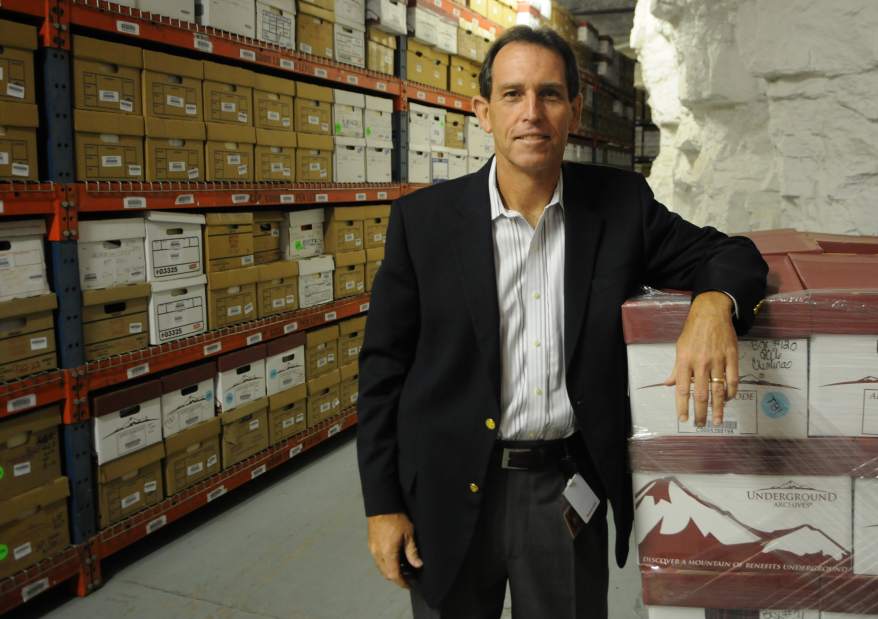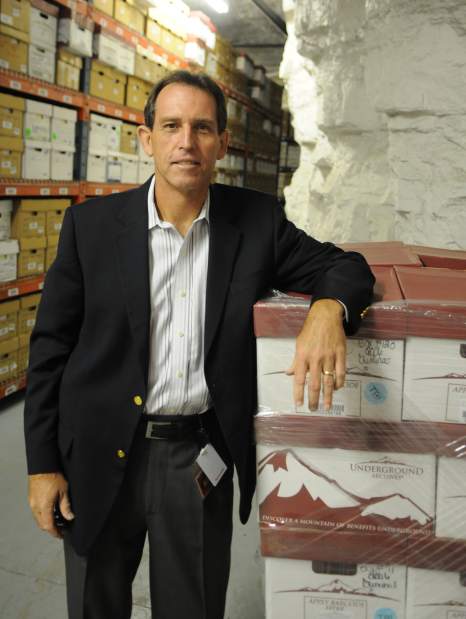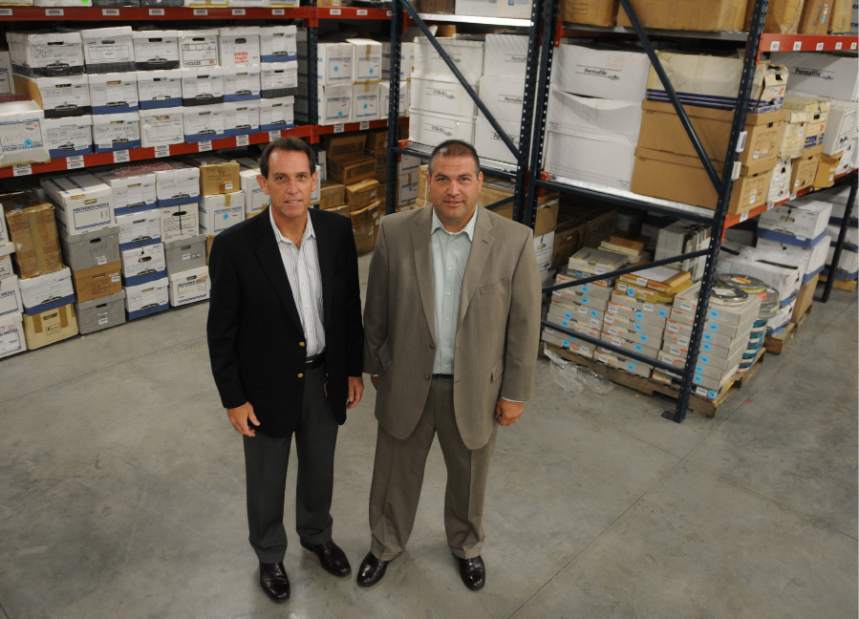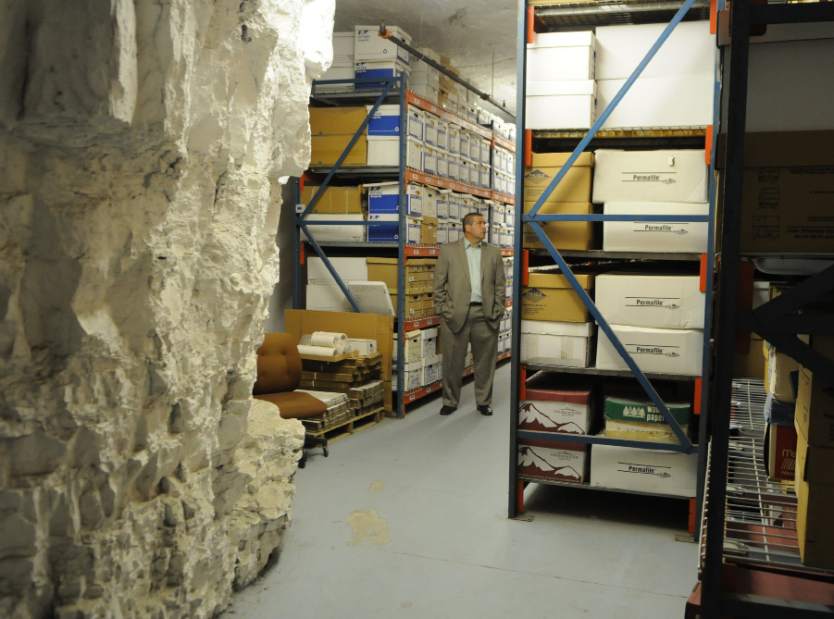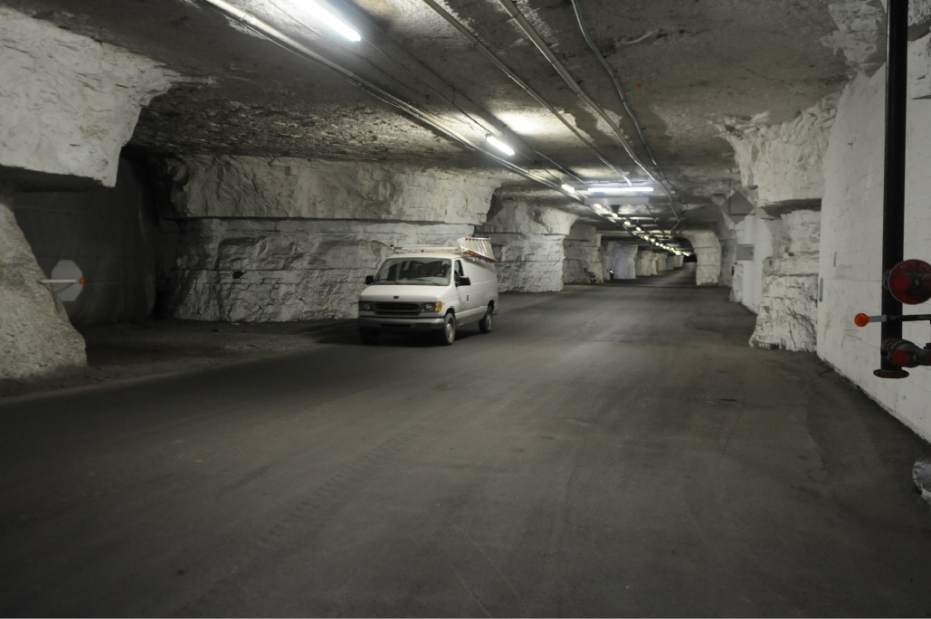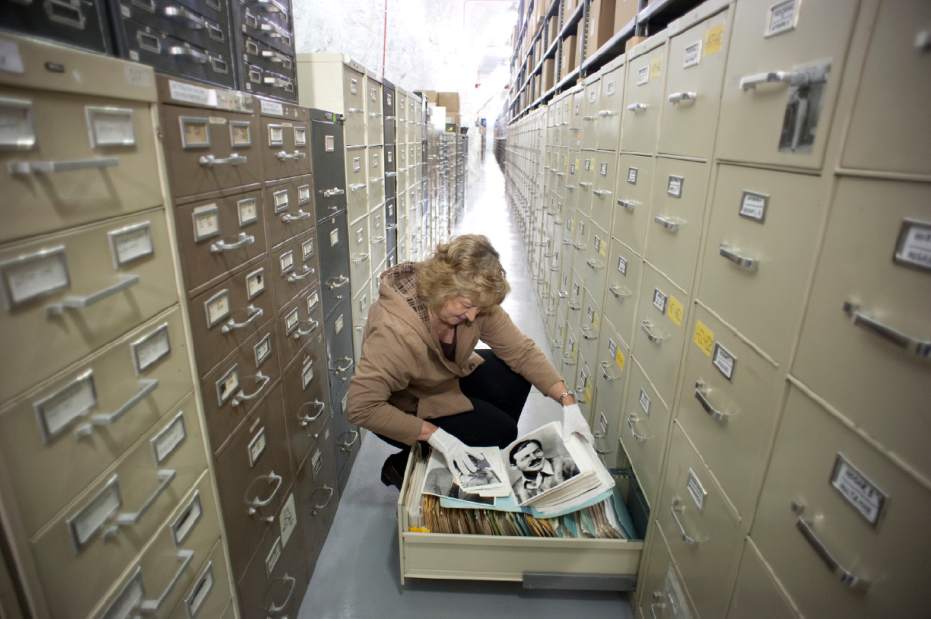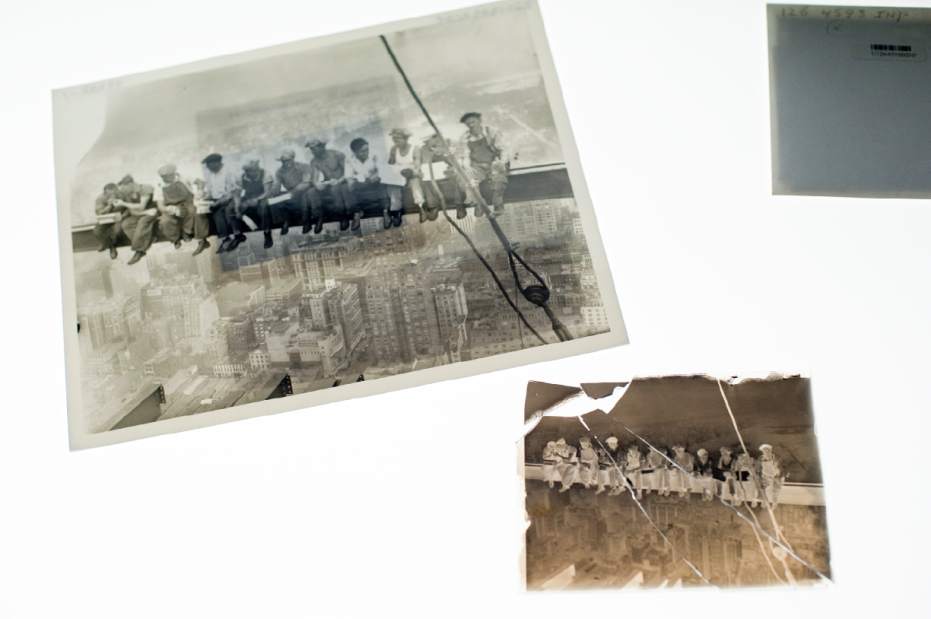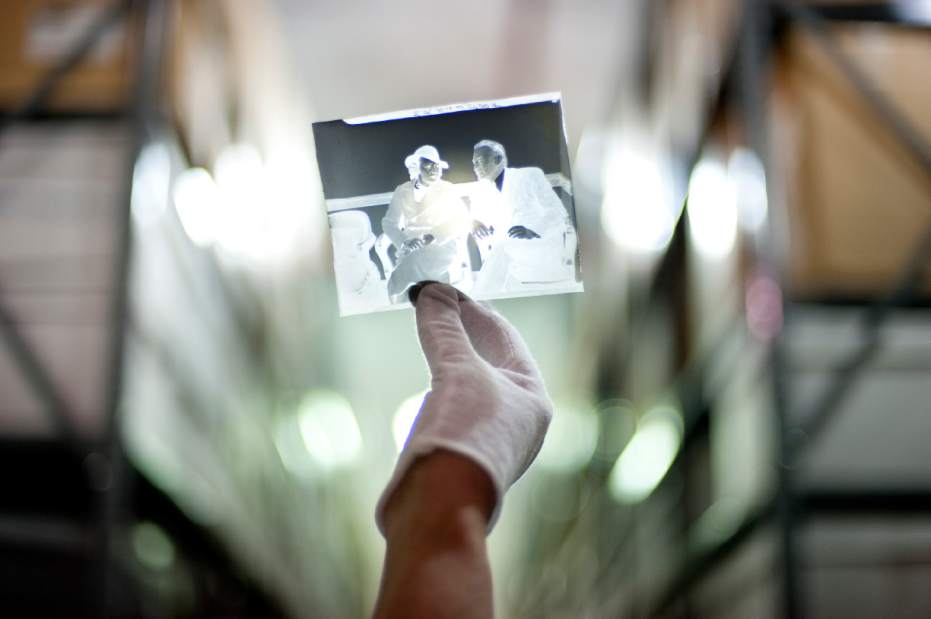Cold storage: Companies go underground to preserve documents, heirlooms
Each day, hundreds of workers make their way into two former limestone mines in Lawrence and Butler counties. But they're not wearing helmets and carrying picks.
Instead, they're sorting through documents, looking through prints of historic photos, even storing recreational vehicles.
They work at either Iron Mountain in the village of Boyers, northeast of Slippery Rock, or at Gateway Commerce Center in Wampum. The two facilities are valued and used by many companies because they offer secure, temperature-controlled storage.
Among other things, Iron Mountain, owned by a Boston-based company of the same name, hosts Corbis Film Preservation, a collection of photos so vast that Leslie Stauffer, production control coordinator for Corbis, risks little in saying it represents “the world's history.”
Iron Mountain bought the 1.7 million-square-foot mine from National Underground in 1998. Besides the millions of photos preserved by Corbis, tenants store original music recordings from Elvis Presley and Frank Sinatra. The federal government houses countless paper records there.
Gateway tenants keep everything from court records to 2,500 boats, motor homes and trailers in 2.5 million square feet leased to 15 companies, said General Manager Deb Sudano. There's enough room to develop another 1.5 million square feet.
The former mine is so large, it hosts an annual 5K run that's popular because of its cool, dry, controlled climate, necessary to protect documents and other valuables from heat and humidity that can destroy them over time.
Both facilities are hundreds of feet underground, an important selling point to tenants with the utmost concern about security.
Operators of both say they're in areas that are geographically stable, so there's little worry about losing records or items because of an earthquake or other natural disaster.
Iron Mountain
In Boyers, nearly 2,700 people work at various businesses in the old mine. Among them are several federal government operations, including the U.S. Office of Personnel Management and the U.S. Patent and Trademark Office.
Commercial tenants include Warner Bros. movie company, the CBS television network and a restaurant.
Corbis Film Preservation Facility houses about 27 million images -- everything from film negatives to glass negatives to paper prints.
The biggest part of the collection is the Bettmann Archive, which includes more than 11 million images. German Otto Bettmann began the collection after fleeing Nazi Germany with thousands of photos he had curated, and it expanded during the following decades, propelled in part by a buyout of the United Press International collection.
It includes some of the most iconic images in history, including Rosa Parks sitting in the front of a bus, Buzz Aldrin standing on the moon, and Albert Einstein sticking out his tongue.
Microsoft founder Bill Gates started Corbis, whose 10,000-square-foot preservation facility opened in the mine in 2002.
There are still blackened circles in the limestone walls where dynamite was used to carve out space for the vault and offices that house the collection.
“You don't get any Vitamin D down here,” joked Sarah Scott, 33, of Butler, Corbis archive editor.
Ann Hartman, manager of library and records management for Corbis, opened a drawer that allowed a visitor to catch a whiff of vinegar that indicates the deterioration of film stock.
To slow down the deterioration, the images, many dating back to the 1800s, are stored in an environmentally controlled vault -- the temperature can be lowered to minus-4 degrees and maintained at 35 percent humidity.
“It's neat stuff being preserved here,” Hartman said.
Gateway Commerce
Business Records Management expanded its operations to a 93,000-square-foot underground limestone mine in early April with its acquisition of Underground Archives LLC. The facility has 350,000 cubic feet for BRM customers to store important audio, film and video recordings, as well as mission-critical documents and data for physicians, lawyers and insurance companies.
The mine is suited for these purposes because it remains at 60 percent humidity and 50 degrees Fahrenheit.
And it's virtually invisible to the public. The only hint there's a hollowed-out mountain with vaults of important documents and artifacts inside is a waist-high call box several feet from metal door for vehicles to pass through.
“It's hard not to walk past a camera in here,” said Joseph Gross, BRM's director of sales and account management.
Beaver County government, for instance, stores all of its legal, financial and administrative documents in the 18,000 square feet of vault space it rents there.
Another customer is a world-famous, pop-music recording artist whose identity, like that of nearly all other BRM customers, is protected by the company, which is based on the North Side.
“One of the nation's largest banks is one of our largest customers,” said CEO Christopher Neefus, declining with a smile to name the institution.
“It's nice here when it's zero or 90 degrees outside because it's comfortable in here all the time,” said Neefus.
Some of the roads inside the mine -- painted white and marked with signs like “1st Ave.” and “2nd St.” -- even have customers' recreational vehicles and boats parked to the side.
“This area is one of the most stable areas of the country, so it has no earthquakes to worry about,” said Neefus.
The streets and limestone storage rooms, or vaults, are between 200 and 600 feet below the entrance surface level.
Most customers put their sensitive stuff in 1.2 cubic-foot cardboard boxes, which line the countless metal shelves inside the limestone vaults. All told, BRM serves some 3,500 customers in Wampum.
A number of local hospitals and law firms store their documents there for a decade or longer. Insurance companies might store a life-insurance policy there for 80 or more years, from the time it's written to the time the insured dies.
In addition, BRM provides images of stored documents for customers so they don't have to drive out to fetch them, and manages a fleet of 37 trucks to serve them. The company also provides “secure shredding” for “anything with a Social Security or bank account number on it,” said Gross. The company shred about 3,200 tons of paper last year.
Bill Vidonic is a staff writer for Trib Total Media and can be reached at bvidonic@tribweb.com or 412-380-5621. Tom Olson is a staff writer for Trib Total Media and can be reached at tolson@tribweb.com or 412-320-7854.

